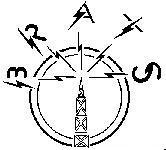 |
 |
 |
| The award-winning monthly publication of The Baltimore Radio Amateur Television Society P.O.Box 5915 Baltimore, MD 21282-5915 |
 |
 |
 |
| The award-winning monthly publication of The Baltimore Radio Amateur Television Society P.O.Box 5915 Baltimore, MD 21282-5915 |